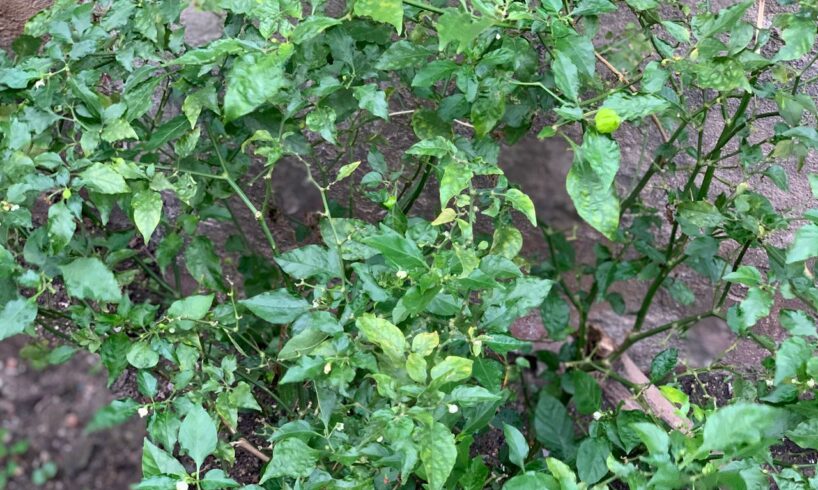
In Amuwo Odofin, a vibrant residential and well-connected area in Lagos State, backyard farming is quietly redefining how residents interact with their environment.
In the heart of this suburb, where concrete walls and close-packed buildings leave little open space, residents are finding creative ways to grow their own foods.
From backyard gardens to containers placed against fences and corners, families are turning to small-scale farming as a way of tackling rising food prices and improve their well-being.
One of the residents leading the way is 15-year-old Fiyinfoluwa Akinwale, who farms alongside her mother at the back of their flat. “We’re planting kitchen garden crops that we can easily pluck, and use to cook, instead of going to the market to buy,” she explained.
To Akinwale, what began as a casual activity has now become a reliable source of fresh vegetables for the family. Together, they grow cucumbers, peppers, bitter leaves, scent leaves, corn, aloe vera, and tomatoes.
She proudly shared that cucumbers are her favorite to plant, a crop she finds both exciting to watch grow and satisfying to harvest, as the small garden grows with simple tools and a lot of care.
This system of farming has become a growing trend in Amuwo Odofin, where everyday residents are taking farming into their own hands, using whatever space they can find.
Investigations also showed that while some residents farm to save money or eat healthy, others have found deeper purpose in growing plants. One of them is Mrs. Ademakinwa, a long-time trader in Amuwo Odofin, who has been cultivating medicinal plants in front of her shop for over 10 years.
Her reason for starting was personal and urgent. “I started because my daughter was sick,” she shared. “I needed herbs to treat her, so I began planting the ones that help with malaria and fungi.” Today, her small roadside garden contains a variety of local herbs, including lemon grass, scent leaves, and bitter leaves — all known for their healing properties in traditional medicine.
“Bitter leaf is my favorite,” she added. “It works for a lot of things.” For Ademakinwa, farming is not just about her family anymore, she says she grows these plants to help other women in the community.
“I want to help a lot of mothers with my plants — especially for health,” she said with pride.
In Mile 2, one of the popular streets in the area, a local apple tree was seen growing behind one of the flats. This shows how residents are planting different types of crops, even unusual ones, in small available spaces.
But despite the enthusiasm and the new love for backyard farming in Amuwo Odofin, residents are not without challenges that are limiting how much they can grow and how far they can expand. The Guardian learnt that one of their biggest headaches is getting access to water.
It was learnt from the residents that many homes either lack regular running water or cannot afford the extra cost of using tap water to irrigate their plants. During the dry season, they mentioned that it becomes very difficult to keep crops alive.
Another major challenge is the issue of limited space. With flats tightly packed and compounds often used for parking or drying clothes, many residents have to be creative — planting in paint buckets, broken basins, or narrow patches of soil near fences.
Other farmers in the area, mentioned pest control and lack of proper tools as their major frustrations. Without guidance or access to agricultural education, most people rely on trial and error. “I just planted and hope it grows,” said a middle-aged woman in Mile 2.
“Sometimes it works, sometimes it doesn’t.” So far, there is little to no support from the government or local organisations to assist these micro-farmers with materials, training, or awareness. Yet, despite these limitations, the people of Amuwo Odofin continue to farm — not because it’s easy, but because it’s necessary.
From The Guardian’s observation, these small green spaces, growing between concrete and beneath balconies, represent the residents’ resilience in a time of rising costs and limited resources.
Though the challenges persist — from water scarcity to lack of support — they noted that their determination to grow food, improve health, and share knowledge is what keeps this quiet revolution alive.
As more residents dig into the soil and plant what they can, one thing becomes clear – in the face of hardship, Amuwo’s farmers are planting more than crops, they’re planting hope.




